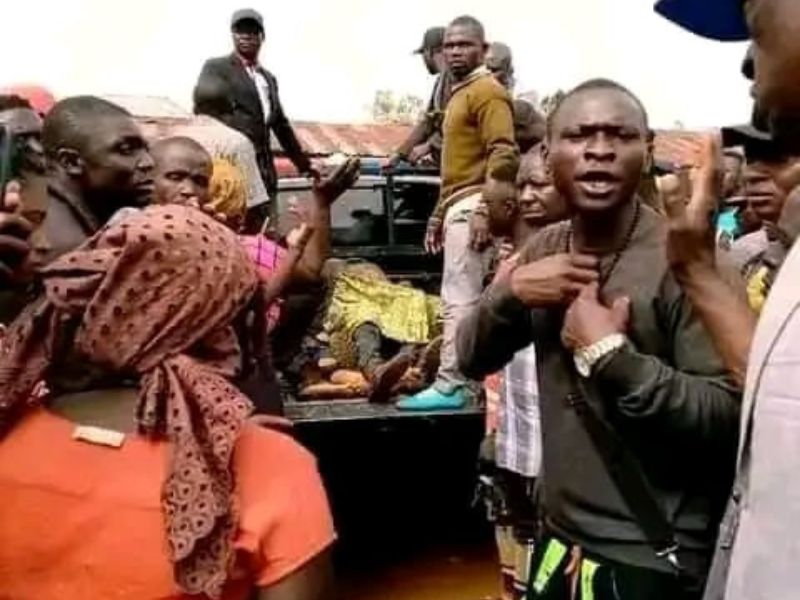Fulani Militias Kill 13 in Latest Attack on Christian Communities in Plateau State

Nigeria (International Christian Concern) — Armed Fulani militias carried out coordinated attacks on several Christian villages in Barkin Ladi Local Government Area (LGA) of Plateau state on Oct. 14, leaving at least 13 people dead and several others injured.
The assailants, reportedly motivated by an extremist ideology, targeted Rawuru, Tatu, and Lawuru villages — areas predominantly inhabited by Christians. The attackers also stole nearly 40 cows and caused widespread destruction of farmlands.
Eyewitnesses from the mission center in Rawuru reported that the gunmen invaded their compound around nightfall, opening fire on residents who had gathered for evening prayers. Two members of the mission center were killed on the spot, while several others managed to escape into the nearby bushes. The attackers later advanced toward Tatu village, where ten additional people were killed in what appeared to be a deliberate attempt to terrorize Christians.
In the Lawuru community, located a few miles away, two more residents were shot dead, and their livestock was taken by the assailants. Locals said the attackers had earlier issued threats and warnings about their intentions, which were reported to security forces. However, no preventive measures were taken before the assault occurred.
“We informed the authorities days before the attack that we were under threat, but no action was taken,” said a church leader from Rawuru who asked not to be named. “Now, our brothers and sisters are dead, and our homes are destroyed.”
The violence extended to other nearby villages, including Rachas in Heipang District and Rawuru in Fan District, both under Barkin Ladi LGA. According to local sources, the simultaneous nature of the attacks suggested a high level of coordination and planning. By dawn, 13 people were confirmed dead, while several others sustained gunshot wounds. Crops, barns, and houses were set ablaze, further displacing families who have now sought refuge in nearby communities.
The Executive Chairman of Barkin Ladi LGA, Hon. Stephen Gyang Pwajok, confirmed the attacks during the mass burial of the victims held in Rachas village the following day. Addressing mourners, Pwajok described the attacks as unprovoked and condemned the killings. He emphasized that the perpetrators appeared to be working with the intention of displacing indigenous Christian communities from their ancestral lands.
Da Paul Tadi-Tok, the district leader of Heipang, also spoke at the burial, voicing deep concern about the frequency of attacks targeting Christian farming communities in the area. He called on the government to implement strict regulations that would prevent non-resident herders from grazing within settled communities. He said that such measures could help identify infiltrators who often disguise themselves as herders to launch attacks.
Tadi-Tok further appealed for the revitalization of Operation Rainbow, Plateau state’s community-based security initiative, arguing that local defense mechanisms remain the most effective in responding swiftly to distress calls in remote areas.
Brigadier General Shippi Gakji Goshwe (Rtd.), the security adviser to Governor Caleb Manasseh Mutfwang and coordinator of Operation Rainbow, assured residents that the government was intensifying its efforts to strengthen local security structures. He announced that recruits were undergoing training to support conventional security agencies in responding to rural violence.
Despite these assurances, fear remains high across Barkin Ladi and surrounding LGAs, where Christian villagers have repeatedly faced attacks attributed to armed Fulani militias. During the past year, similar incidents have been recorded in Mangu, Riyom, and Bokkos LGAs, resulting in hundreds of deaths and large-scale displacement.
Local community leaders continue to express frustration over the lack of accountability and timely intervention by security forces, especially given that many of the attacks are preceded by public threats. Churches in the region have appealed for international attention, calling on humanitarian organizations to support displaced families and ensure that justice is pursued for the victims.
For now, communities across central Plateau remain on edge, bracing for further attacks as the rainy season draws to a close — a period when many farmers are traditionally targeted while harvesting their crops. The recurring violence has left many Christians questioning their safety and the future of their ancestral homeland.
To read more news stories, visit the ICC Newsroom. For interviews, please email [email protected]. To support ICC’s work around the world, please give to our Where Most Needed Fund.
